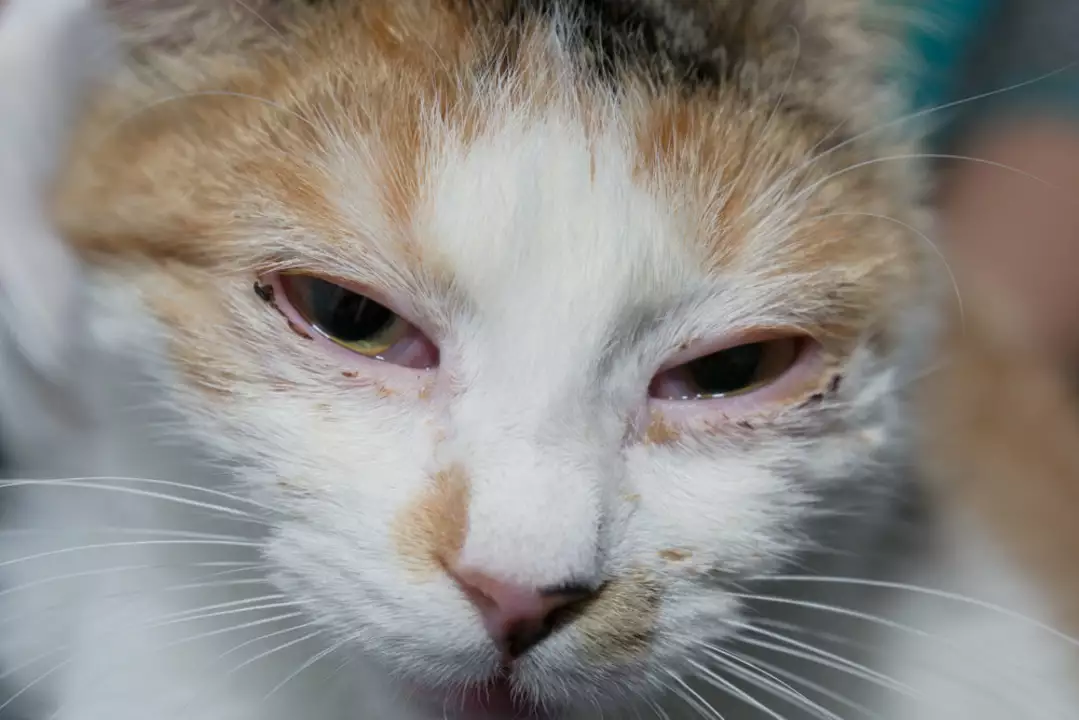Feline Herpes Virus (FHV‑1): What Every Cat Owner Should Know
Feline herpesvirus (FHV‑1) is a top cause of sniffles and eye problems in cats. Many cats pick it up as kittens and then carry the virus for life. You might see sneezing, watery eyes, green discharge, or even flaky corneas. It often shows up when a cat is stressed, so a calm home helps more than you might think.
How vets diagnose and treat it
If your cat has a runny nose or sore eyes that don’t clear in a few days, see your vet. They’ll check the eyes for corneal ulcers and may use swabs or PCR tests to confirm FHV‑1. Treatment depends on how bad the signs are. For mild cases, vets use supportive care: fluids, appetite support, and eye lubricants. For more serious eye disease, vets may prescribe antiviral drugs like famciclovir or topical antivirals (for example, cidofovir). These are chosen because they work in cats and are safe when used correctly.
Don’t give human antivirals or creams without vet advice. Acyclovir (found in some human creams) is not reliably effective in cats and can be risky when used wrong. Even topical human products intended for herpes simplex in people aren’t a substitute for veterinary treatment. If you read about new human antivirals or generics online, ask your vet if any apply to cats.
Home care, prevention, and daily tips
At home you can do a lot to help. Keep the eyes clean with warm saline wipes, offer tempting food to keep eating, and reduce stress—quiet spaces, consistent routines, and separate litter boxes for multi‑cat homes. If a cat has discharge, wash your hands between handling pets and clean food bowls and bedding regularly. Isolate sick cats from others when possible to cut spread.
Vaccination won’t stop a cat from becoming infected, but it reduces how severe signs get. Talk to your vet about the vaccine schedule, especially if you have kittens or multiple cats. For long‑term care, some vets recommend lysine supplements; the evidence is mixed, but owners sometimes see fewer flare‑ups. Monitor for trouble signs: eye ulceration, refusal to eat, heavy breathing, or marked lethargy—those need immediate vet attention.
FHV‑1 often becomes a low-level, chronic issue. With prompt vet care, good home management, and stress reduction, most cats live comfortable lives. Keep records of flare‑ups and treatments, and work with your vet to find what helps your cat the most.

Famciclovir for Cats: Treating Feline Herpes Virus Effectively
As a cat owner, I recently came across an effective treatment for feline herpes virus called Famciclovir. This antiviral medication has been a game changer in managing this common ailment in cats. Not only does it help reduce the severity of symptoms, but it also speeds up the recovery process. I'm glad I discovered Famciclovir for my furry friend, and I highly recommend it to other cat owners dealing with feline herpes virus. It's important to consult with your vet for proper dosage and administration.
view more




